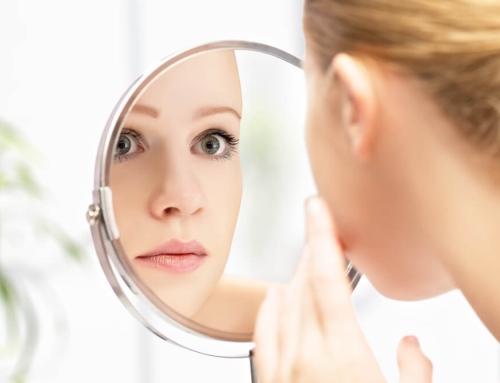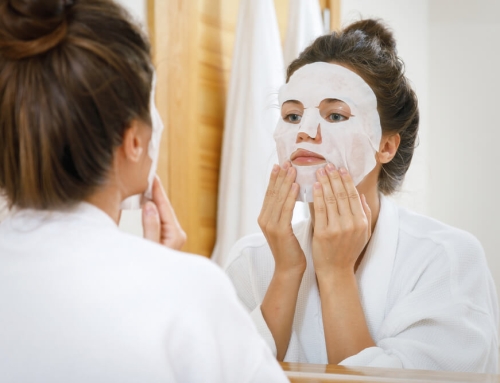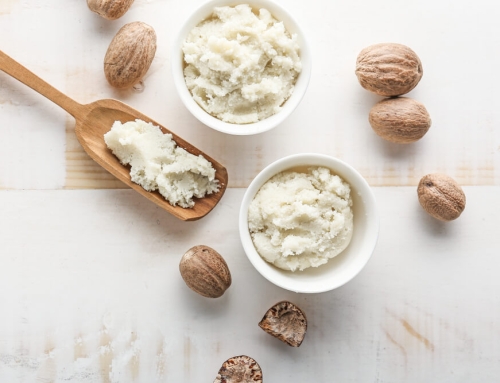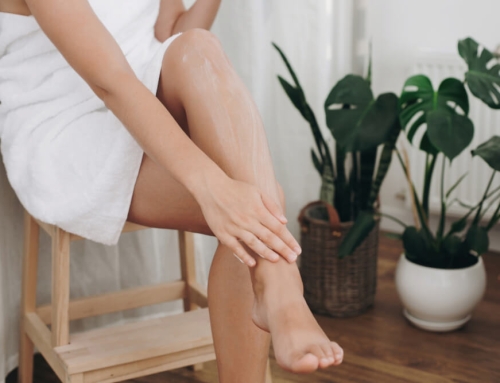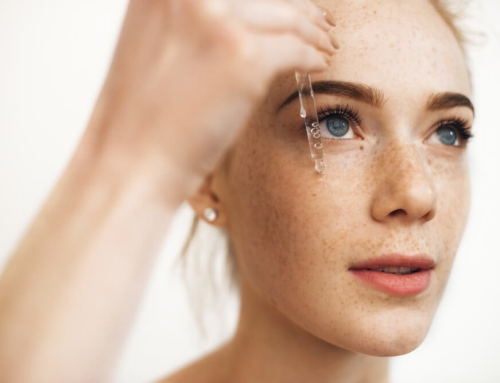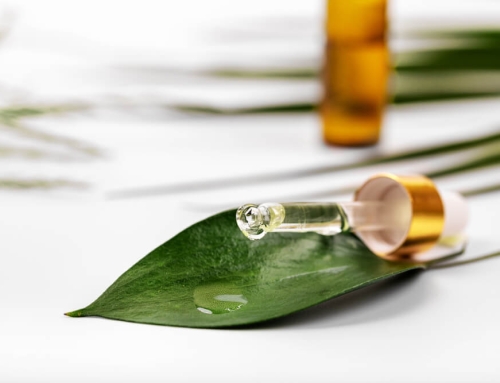Feeling frustrated that your eye cream doesn’t seem to be making any difference to your skin?
There are a few reasons why this could be, and it may not necessarily be the fault of your eye cream…
You’re Not Giving Your Eye Cream Enough Time to Work
How long do you give a new skincare product before deciding whether or not it has worked for you?
In the case of eye creams, some may work pretty quickly, especially if they contain fast-acting ingredients, such as caffeine or hyaluronic acid. However, while those results may be apparent quickly, most eye creams are formulated to provide long-term results, meaning smoother, firmer and tighter skin around the eyes.
However, in order for an eye cream to bring about these improvements, it needs to stimulate your skin’s production of collagen and elastin.
Wondering what collagen and elastin are?
They are the two main proteins that give your skin its structure, volume, firmness and elasticity. Your skin produces plenty of these proteins while it is young, but then production slowly declines are your skin ages, resulting in fine lines, wrinkles and loose skin.
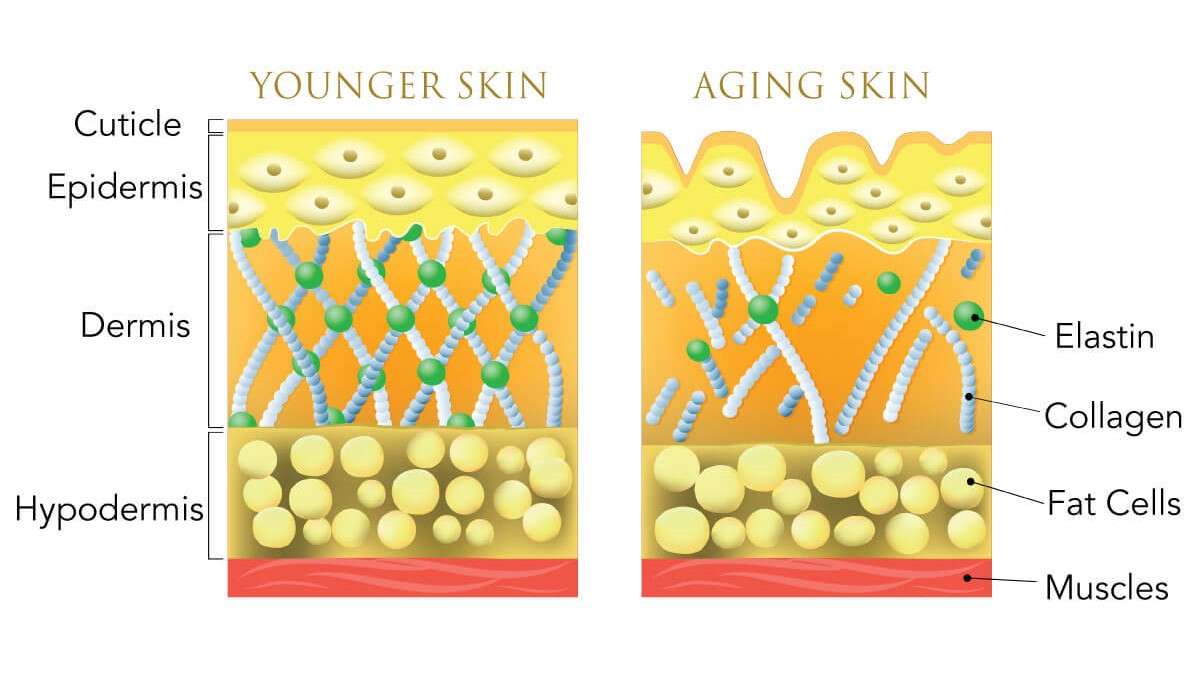
If your eye cream hasn’t been tightening your skin up in the way that you had hoped, this may be because you haven’t given the ingredients in the cream enough time to work.
How long does it take for long-term effects of an eye cream to become apparent?
Usually, around six months.
Why so long?
Because this is the amount of time your skin needs to actually build more collagen and elastin fibers. You need to be using your eye cream regularly and consistently (meaning every night) for at least three months if you want these long-term results to be apparent.
Your Eye Cream Does Not Contain the Right Ingredients
Have you ever taken a look at the ingredients list of your eye cream?
An eye cream can serve a number of different purposes, such as:
- Reducing the appearance of fine lines and wrinkles
- Tightening up the skin around the eyes
- Minimizing dark circles
- Soothing puffiness
However, unless your eye cream contains ingredients that are actually capable of doing those things, then it isn’t going to have much of an impact.
Want to know which ingredients you should be looking out for in an eye cream?
There are quite a few beneficial ingredients, but some of the best are:
- Peptides – these are great for cell renewal and tightening up the skin over time
- Caffeine – this will perk up the skin around the eyes, making it look fresher, more awake and less puffy, while also minimizing dark circles
- Aloe vera – a soothing botanical that is also packed with several anti-aging antioxidants
- Plant oils – these will nourish and protect the delicate skin around the eyes
- Vitamin E – great for healing, regenerating and moisturizing
- Vitamin A – increases cell turnover while providing many other anti-aging benefits too
Can’t find a product that contains all of those ingredients?
Here’s one to try…
The OROGOLD 24K Intensive Eye Formula Cream has been formulated with all of those ingredients, plus more. It was designed to be an all-rounder when it comes to common skin concerns around the eyes, tackling everything from dark circles and puffiness to fine lines and wrinkles.
You’re Not Wearing an SPF Around Your Eyes During the Day
Do you wear SPF around your eyes every day, even in the winter?
If your answer is no, then this could be why you haven’t been noticing your eye cream making a difference to your skin.
You’re probably thinking…
How does SPF have anything to do with my eye cream?
Well, you probably already know that the sun’s UV rays can cause some serious damage to your skin. The fact that the skin around the eyes is already so much thinner than the skin on the rest of your face doesn’t help – this only means that you will notice sun damage in this area sooner than you will anywhere else on your face.
What does sun damage look like?
Since UV rays break down the collagen and elastin fibers in your skin, sun damage causes your skin to wrinkle and sag, while also triggering the development of dark spots.
If these are some of the issues that you have been dealing with, then try being more diligent about your SPF use during the day. You will likely soon notice that, once you are properly protecting the skin around your eyes from the sun, your eye cream will then be able to work to its full potential.
Your Cleanser or Eye Makeup Remover is Too Oily
If you use an oil-based cleanser or an oil-based eye makeup remover, then this is something that you need to read carefully…
Now, usually, there is absolutely nothing wrong with oil-based cleansers and makeup removers. In fact, the oil in these products can often help to break down makeup and dirt much more effectively, leaving you with a cleaner and fresher face.
However, the problem arises when your cleanser leaves an oily coating over the surface of your skin. This may only be very light and difficult to detect, but it can still prevent your eye cream from working properly.
How?
Because the active ingredients in your eye cream will not be able to penetrate through that layer of oil to reach your skin cells, rendering them useless.
So, what’s the solution?
It’s simple – use a water-based cleanser or eye makeup remover whenever you plan on applying your eye cream afterwards. The OROGOLD 24K Vitamin C Facial Cleanser is a great example, because this water-based cleanser also contains several antioxidants and vitamins that will give the skin around your eyes an extra boost.
If you can’t bear to go without your favorite oil-based cleanser, then make sure that you apply a toner once you are done cleansing. A toner will help to remove any greasy residue that your cleanser has left behind, meaning that your skin will then be prepared to readily absorb your eye cream.
Of course, even if you switch to a water-based cleanser, a toner can still be helpful when it comes to increasing absorption of your eye cream.
You’re Applying Your Eye Cream Onto Dry Skin
Eye creams contain moisturizing ingredients, and, just like any other moisturizer, these ingredients tend to be more effective when applied onto damp, rather than dry, skin.
Why?
Because one of the roles of a moisturizer is to form a protective film over the surface of the skin. This not only traps moisture within, quickly plumping up the skin cells, but also protects the skin from environmental damage.
When you apply a moisturizer to skin that is already damp, then all of those extra water molecules end up trapped beneath the moisturizer’s protective film. Rather than evaporating into the air like they otherwise would have, these water molecules are pushed deep into the skin, providing an added dose of hydration.
You Rub Instead of Pat
Most people rub their skincare products into their skin, including their eye cream. However, did you know that your products will be so much more effective if you gently pat them in instead?
This technique is well-known in parts of Asia, especially Korea and Japan, with patting offering a few different benefits:
- It is much gentler on your skin, since rubbing tugs at your skin and causes friction, which can damage your skin’s structure
- It increases the rate at which your skincare products are absorbed by your skin
- It stimulates blood circulation, giving you a naturally plump, rosy glow
- The act of patting can be quite meditative and calming
When it comes to your eye cream, try using your ring finger to pat the product into your skin. This will ensure that you are patting lightly, as you will likely exert more pressure if you use any of your other fingers.
You’re Not Giving Your Eye Cream Enough Time to Fully Absorb

If your eye cream contains powerful active ingredients, then you need to give these ingredients some time to sink into your skin and work their magic before applying anything else over the top of them.
Yes, even if you’re patting your eye cream into your skin to increase absorption, you should still wait for a few minutes after applying it before moving on to the next stage of your skincare routine.
If you don’t, then the next product you apply will only mix in with the active ingredients of your eye cream, diluting them and making them much less potent.
Your Other Skincare Products are Deactivating Your Eye Cream
Did you know that there are certain ingredient combinations that should never be used together?
You’re probably wondering why…
Take vitamin C for example. This is an ingredient that can truly transform the skin around your eyes, but, if it is mixed with AHAs, BHAs, niacinamide or even retinol, it won’t be very effective.
Why?
Because vitamin C is quite an unstable ingredient, and needs a very specific pH level in order for it to work its magic. Using it with any of the above-mentioned ingredients will destabilize it, making it pretty much useless.
Yes, this does mean that you will need to go through all of the ingredients in your skincare routine to make sure that they really are complementing each other in the best way possible.
You’re Not Getting Enough Sleep at Night
How much sleep do you get each night?
If your answer is less than eight hours, then this could be why your eye cream isn’t working – it simply cannot compete with the effects caused by a lack of sleep.
How does sleep deprivation affect the skin around the eyes?
It can lead to:
- Dark circles
- Eye bags
- Paleness and dullness
- Redness
- Droopy eyelids
- More noticeable fine lines and wrinkles
As you can see, these are all things that an eye cream is designed to prevent and treat, but it does not stand a chance of doing so when it is up against sleep deprivation.
Plus, sleep deprivation also has so many other negative consequences when it comes to your overall health.

If you struggle with getting enough sleep at night…
Here are a few tips to help:
- Turn your bedroom into a relaxing sanctuary, with dim lights, soothing music, relaxing scents and comfortable furnishings
- Keep your bedroom cool, rather than warm
- Avoid caffeine from the afternoon onwards, and stay away from alcohol too
- Don’t exercise within three hours of your usual bedtime
- Set regular times for sleeping and waking, even on weekends, to get your body clock working optimally
- Try to avoid napping during the day
- Avoid the use of electronic devices a couple of hours before going to bed
You’re Not Exfoliating the Skin Around Your Eyes
Yes, the skin around your eyes is extremely delicate, but you still need to regularly exfoliate this area. Exfoliating unclogs your pores, providing a clear passage for your eye cream to make its way into your skin cells.
So, how should you be exfoliating the skin around your eyes?
Stick to something gentle, such as a light chemical exfoliant that contains lactic acid. Don’t use any scrubs or physical exfoliants on the fragile skin around your eyes – as mentioned above, all of that rubbing and friction really does not do the skin here any good.
You don’t need to exfoliate too often either – just a couple of times a week is all you need to help maximize the power of your eye cream, as well as any other skincare products you use.
A good eye cream can really make a huge difference to the health and appearance of the skin around your eyes, making this a product well worth investing in. However, if you have been thinking that your eye cream simply isn’t working, it could be down to one of the above reasons – fortunately, each one is pretty easy to rectify!


